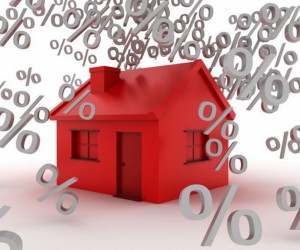Baby boomers are the richest generation in Australia but it's unlikely that younger generations will ever reach the same levels of wealth as their parents.
This is especially true for Generation Y (people born in the early 1980’ to early 2000’s) who are struggling to accumulate wealth now and will possibly continue to do so in the decades ahead.
Generation X ( those born between the mid 1960’s to the early 1980’s) are doing marginally better, but they’re also unlikely to reach the lofty financial heights of their baby boomer parents – even after later-in-life inheritances.
All this brings up a number of questions:
- Why is Australia experiencing this generational wealth change?
- What is driving so many Generation Y towards a mediocre financial position in life, rather than financial independence or, better yet, financial freedom?
- Why are Generation Y likely to be the first generation in history to be less wealthy than their parents?
- What can these younger generations do to secure their financial futures?
Then and Now: the cost of living 1975 compared to 2015
Forty years ago, baby boomers were the same age that Generation Y are today.
Life back then was similar in many ways but very different in others.
In the 1970’s people were generally marrying younger, and it was also the decade when more women started returning to work after having children.
While the increasing number of women in the workforce continued for the next two decades, it was quite a significant societal shift when it started.
This meant that in the 1970s households started to become wealthier as they had two incomes, which in turn gave them more disposable income allowing them to spend more on their homes which in turn put pressure on property prices.
We’re earning more
According to McCrindle's 40 Years of Change: 1975 to Today report, Australians are earning a lot more now than we were back then.
The average full-time earnings in 1975 was $7,600 per year, today the annual average earnings exceed $72,000 per annum.
And while we’re earning more, it clearly costs significantly more to live today than it did back then:
Source: McCrindle
And while earnings have gone up almost 10-fold over the last 40 years, house prices in Sydney for example, have gone up by more than 30-fold in that same period of time.
Average Property Prices:
Source: McCrindle
Why are baby boomers so far ahead?
There are a number of reasons why baby boomers are so far ahead of Generation Y when it comes to wealth creation.
According to the Grattan Institute's The Wealth of Generations report, older Australians are capturing a growing share of Australia’s wealth, while the wealth of younger Australians has stagnated.
The housing boom plus rapid increases in government payments on pensions and services for older people risks creating a generation of young Australians with a lower standard of living than that of their parents at a similar age.
The generational bargain is under threat 
The generational bargain, under which each generation of working Australians supports retirees while still improving its own standard of living, is under threat.
The report found that most age groups are richer than they were in 2003.
An average 55 to 64-year-old household was $173,000 richer in real terms in 2011 to 12 than was a household of that age in 2003-04, and the average 65 to 74-year-old household was $215,000 better off over the same period.
However, the average 35 to 44-year-old household was only $80,000 richer.
Worst affected were 25 to 34-year olds who had less wealth than people of the same age eight years before – even though they saved more than did people of that age in the past.
Home ownership rate plummeting
And, according to research revealed in the Household, Income and Labour Dynamics in Australia (HILDA) Survey, based on current trends, fewer than half of all Australian adults will own their own homes in the near future.
Report author, Professor Roger Wilkins, from the University’s Melbourne Institute, says that the high cost of real estate was putting pressure on younger generations, while older generations benefited from the large increases in house values.
He says between 2001 and 2014, owner-occupied houses have declined by 3.5 percentage points, which translates to 700,000 Australian homes.
And it is likely that in the next few years less than half of adults will be homeowners.
There's no denying that the survey results above show a slow but steady decline in the proportion of households that are homeowner households and while housing affordability may have played a part in this, one has to also consider the possibility of fewer people choosing to buy a home.
While it’s clear that property prices have increased significantly over the past 40 years, it’s also important to consider differences in the how mortgages are funded as well as access to credit.
As I mentioned earlier, from the 1970s onwards, households generally started having two incomes, which meant that demand for higher quality property in better locations increased, as did prices.
Also, once financial sector was deregulated in the 1980s and we moved into a low inflation and low interest rate environment in the 1990s, access to finance improved significantly across Australia.
Low interest rates made a big difference.
According to the RBA, low inflation together with increased competition in the mortgage market reduced housing loan interest rates, thereby easing serviceability constraints.
Previously credit constrained households were increasingly able to borrow more for a given level of income and pay higher prices.
Without a corresponding increase in supply in the most desirable locations, this was likely to have led to a pick-up in housing price growth, and household debt, for a protracted period.
According to an ABC fact check, there are approximately 9,000,000 dwellings in Australia.
The 2011 Census found that 67 per cent of households own their home or are purchasing it through a mortgage – most of the rest are renters.
That home ownership figure was 1.1 percentage points lower than the 2006 Census.
Tasmania has the highest home-ownership rate at 70 per cent, and the Northern Territory the lowest at 46 per cent.
The proportion of home ownership has been fairly stable for more than fifty years, after rising from 53 per cent in 1947 to 63 per cent in 1954 and hitting 70 per cent in 1961.
The future looks grim for Generation Z
What I find most interesting in the HILDA data-set mentioned earlier is the insight that the majority of the decline in home ownership in the 25 to 34 age group occurred between 2010 and 2014.
Not only was that time period in the midst of the GFC, when unemployment increased and job security decreased, but it was also when many state governments decided to remove any financial support for first homebuyers of established properties.
Previously the First Home Owners Grant was available to first-time buyers of all residential property, but this began to change when state governments indicated they wanted to provide additional stimulus and support to the construction sector.
The grant was restricted to first homebuyers of new properties, even though the vast majority (somewhere between 70 and 80 per cent) of first-time buyers opt to buy established property, mainly due to affordability factors.
While we can't argue with state governments wanting to stimulate such an important part of our economy as the construction sector, we also need to be cognisant of what impact the removal of the grant for established properties had on the ability of young people to buy their very first property.
Also it's worth considering what impact that additional grant stimulus had on the situation we are now in, which is an oversupply of new units in many of our capital cities.
The HILDA researchers noted that the decline in home ownership between 2001 and 2014 would suggest there is likely to have been change in the age composition of home owners.
In particular, they say, one might expect that rates of home ownership have fallen more rapidly for younger age groups and this is certainly borne out by the new data.
Home ownership among persons aged 25 to 34 declined from 38.7 per cent in 2002 to 29.2 per cent in 2014, with much of the decline occurring between 2010 and 2014.
If these trends continue then the opportunities to own property for Generation Z may be vastly reduced, which again will impact their overall wealth position during their lifetimes.
Research suggests that the average age of first homebuyers is increasing.
The average age of a first-time buyer in the 1970s was 25 but by 2011 that had increased to 31.
Again, we also experienced quite significant lifestyle changes over the past 40 years, including people marrying later or perhaps not at all.
This can often also serve to delay property investment, given housing affordability considerations.
It will be interesting to see whether the age of first homeowners continues to increase or perhaps stays at around the age that many people settle down with partners and buy a home together
Either way, with property prices growing due to continued population growth, the financial future of Generation Z does not look promising without the help of their parents.
The bottom line…
While this information does seem to highlight the increasing difficulty that Generation Y are experiencing on their path to wealth creation, that doesn't mean that there aren't opportunities available to them.
In fact, at Metropole we help investors of all ages – from Millennials to Generation Y to baby boomers – grow their wealth through strategically acquiring investment grade properties.
With all of the property marketers, developers and agents out there looking after their own interests and generally not yours, it's a great feeling to have an independent team like Metropole on your side throughout every stage of your life.
If you’re looking for independent advice, no one can help you quite like the independent property investment strategists at Metropole.
Remember the multi award winning team of property investment strategists at Metropole have no properties to sell, so their advice is unbiased.
Whether you are a beginner or a seasoned property investor, we would love to help you formulate an investment strategy or do a review of your existing portfolio, and help you take your property investment to the next level.
Please click here to organise a time for a chat. Or call us on 1300 20 30 30.
When you attend our offices in Melbourne, Sydney or Brisbane you will receive a free copy of my latest 2 x DVD program Building Wealth through Property Investment in the new Economy valued at $49.





















